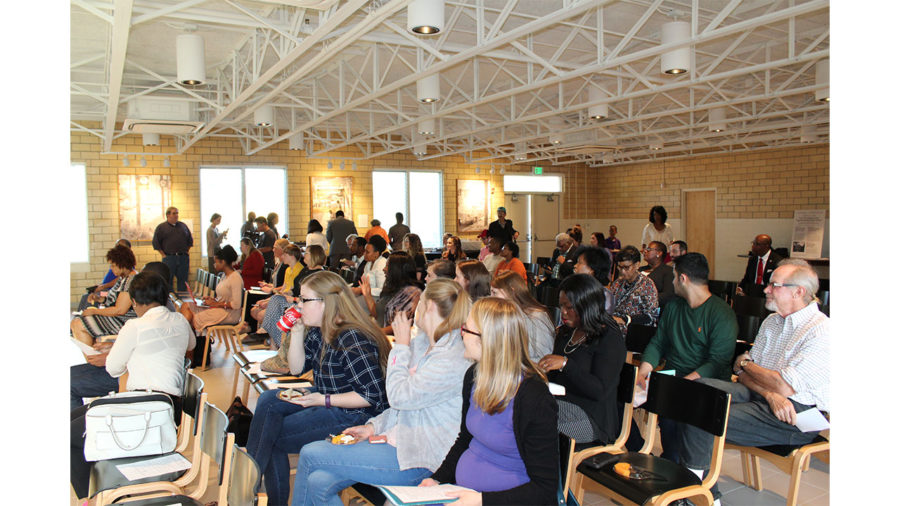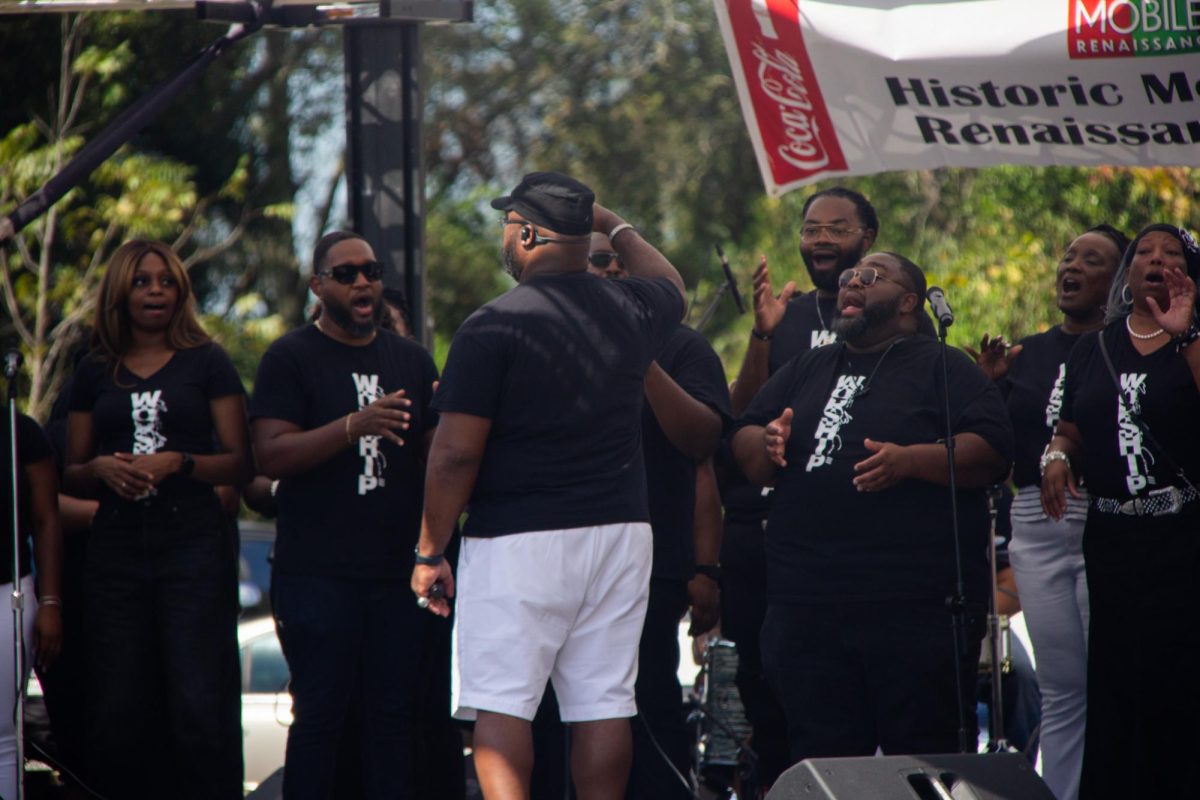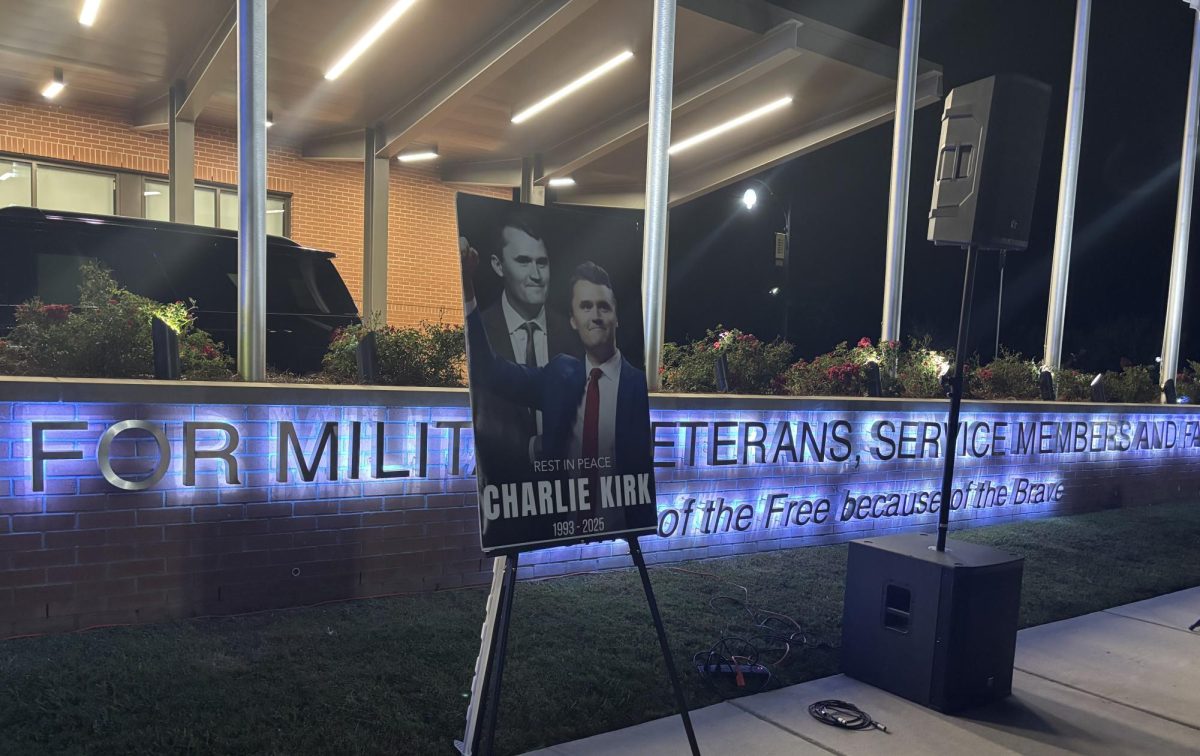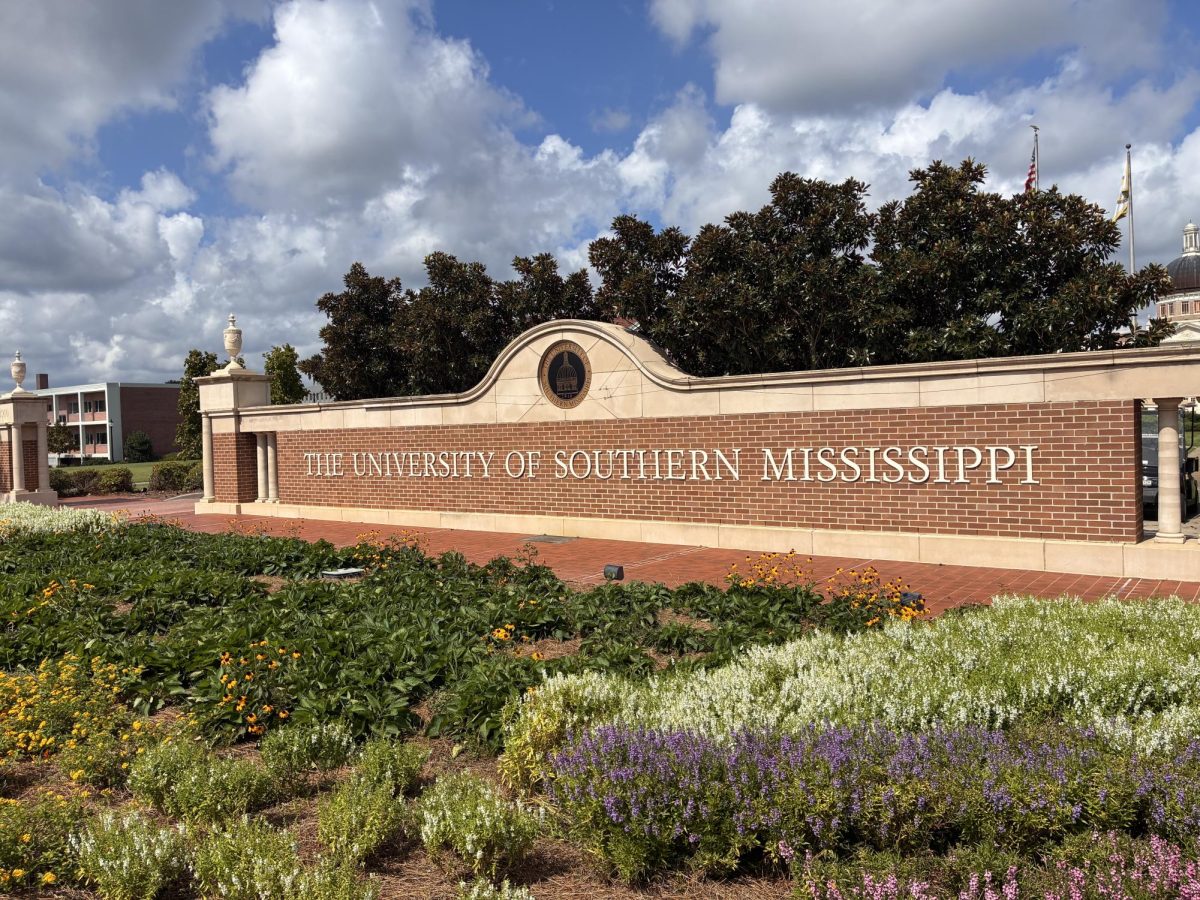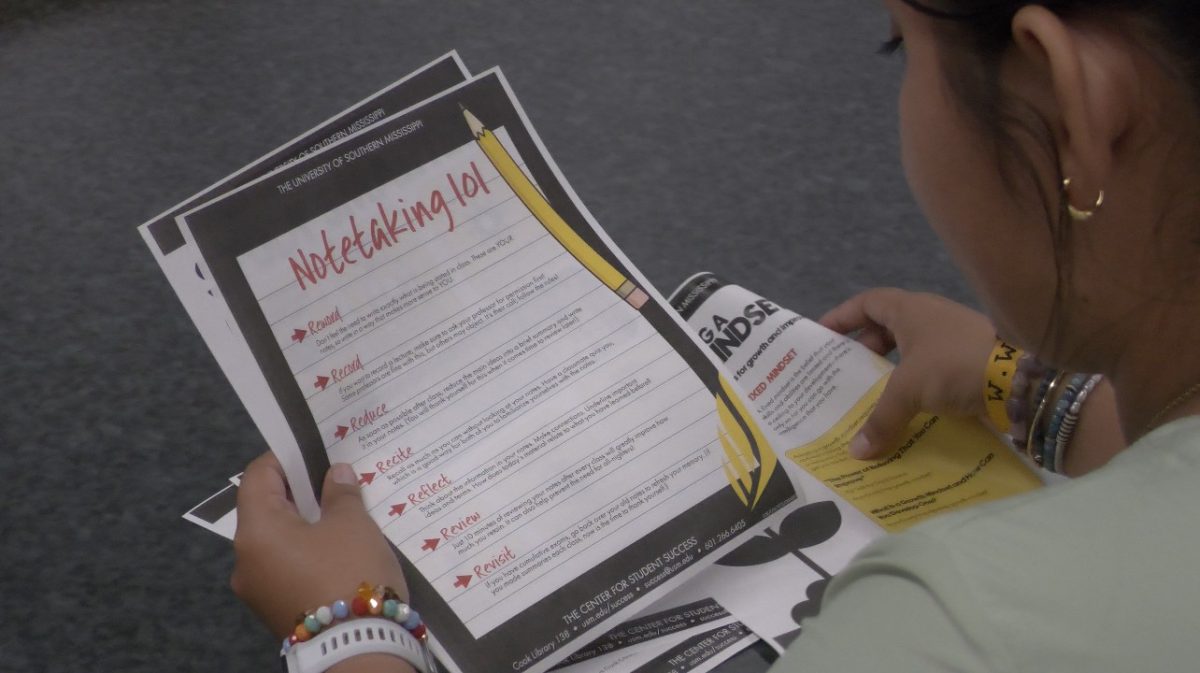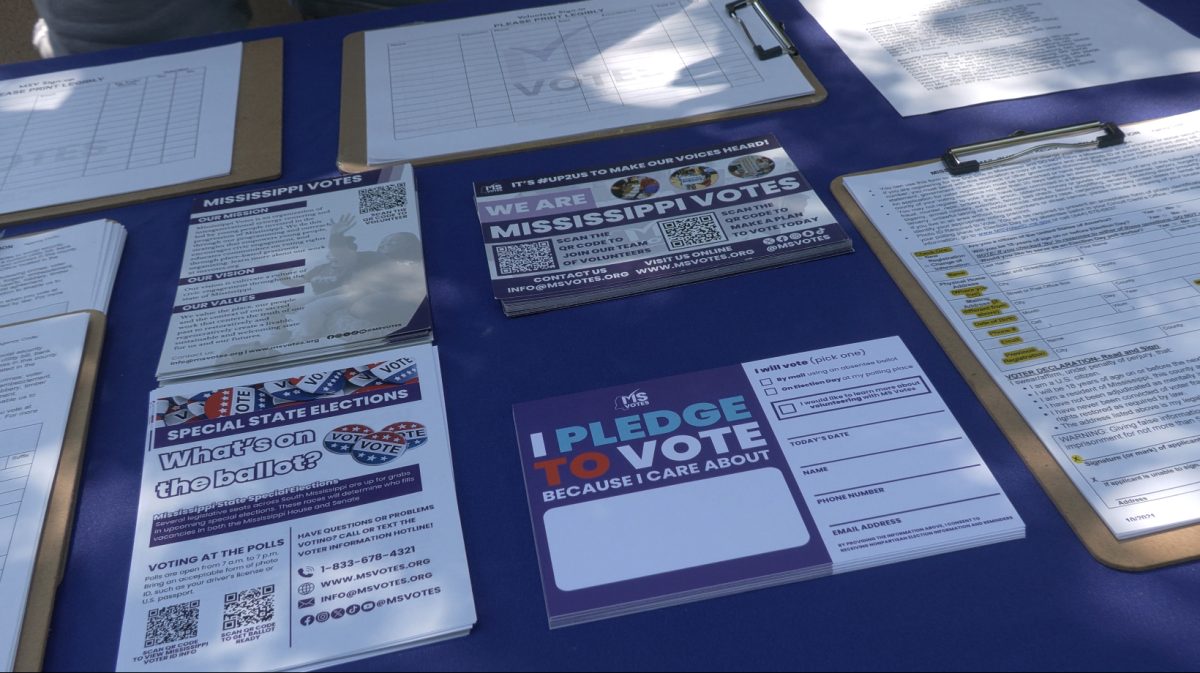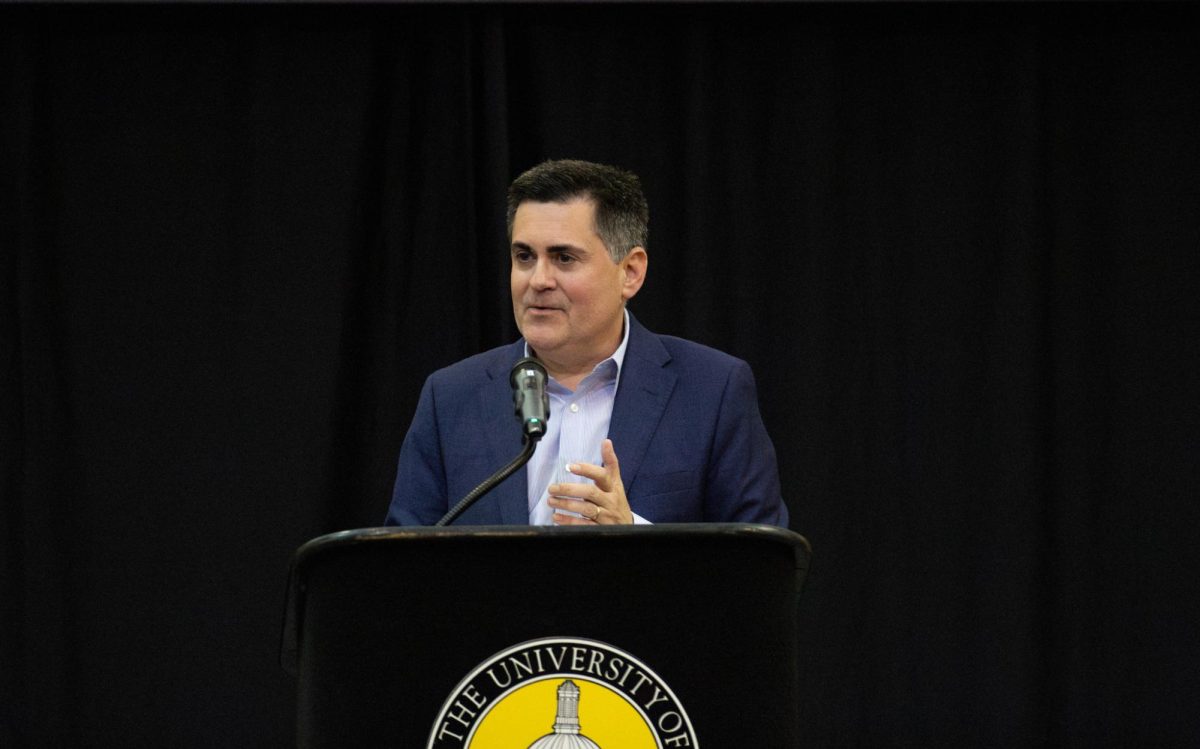On March 30, students and professors from The University of Southern Mississippi gathered at the historic Eureka School building in Downtown Hattiesburg to attend the Clyde Kennard Lecture Series sponsored by the Mississippi Humanities Council.
Hattiesburg Mayor Johnny Dupree and civil rights activist Peggy Jean Conner attended the lecture.
“The Student Printz and the Archival Recovery of a Segregated Past” featured assistant professor Loren Coleman, associate professor Cheryl Jenkins and Riva Brown, the first African-American executive editor of The Student Printz.
The lecture aimed to analyze the media coverage of Clyde Kennard, an African-American man who attempted to enroll at the all-white Mississippi Southern College (now USM), through Student Printz articles published during the Civil Rights Movement.
Coleman and Jenkins opened the lecture by discussing past Printz articles.
“How many people still get a hard copy newspaper?” Coleman said. “Newspapers still shape this world. Newspapers are cultural artifacts. If you wanted to know what happened in Hattiesburg in 1955, you would go to the Hattiesburg American.”
Coleman said newspapers contribute to pertinent issues, organize protest and start conversations. Coleman read a quote from a Printz article on Kennard’s first enrollment attempt:
“‘Despite rumors, to the contrary [Dr. McCain] had no knowledge of other formal applications by Negroes.’”
Coleman said McCain’s quote seems to reassure the student body that they do not have to worry about any other black students trying to get in the school.
“The university was starting to pay more attention,” Coleman said. “‘Could this really happen? If this is going to happen, what should our student posture be?’”
Coleman said the Printz reflected the students’ collective voice at the time.
Jenkins added that the Printz gave little coverage to Kennard and did not cover the topic of race often.
This led to the creation of Brown’s alternative publication, Unheard Word.
Brown created the publication to cover race stories that were often times under-reported or ignored.
“Unheard Word is an example of activism on student campus,” Jenkins said. “It was instrumental in providing a black voice on campus.”
Brown then began the discussion of her publication.
“It’s very surreal hearing [Coleman and Jenkins] talk about something I created when I was 19,” she said. “I remember going on a trip to Kentucky for school [while attending USM] and seeing an office just for black students. I was amazed. On the way back to Hattiesburg, I woke up and started writing all these ideas down, and that led to the Unheard Word.”
Brown said she had no former experience in creating a publication and learned from a mentor at the Hattiesburg Education Literacy Project where she tutored other students.
“The reception wasn’t always so positive, even with black students,” she said. “I just wanted to educate students. I never considered myself an activist. I considered myself a catalyst. A catalyst for change.”
Brown said she paid the printing costs herself and that money was tight. However, she never charged for her publications.
“I felt like education and this type of knowledge should be free,” she said.
Brown said she felt as if her publication was truly making a difference and that, now, Kennard’s story is well-known.
Brown even got the chance to interview former USM President Aubrey Lucas for an article titled “Lucas Talks on Black Issues”
“People were shocked that I called the president’s office and asked to talk to him about these things,” she said.
“Riva set the standard for so many journalists,” said School of Mass Communication and Journalism Director David Davies. “I knew this was someone who was going to make a difference.”
Brown said she still gets emotional recalling her times as a student.
“Often times, I was told ‘you’re too black,’” she said. “We can’t be around or associated with you. We’re scared we’re going to be kicked out of school.”
Brown said she faced other criticisms as well.
“I remembered my first semester as the editor of the Student Printz, people accused me of trying to turn the paper into Ebony Magazine,” she said. “People thought I had the agenda of turning the school newspaper black.”
She read aloud an agenda that President Lucas’ committee made to commemorate and honor Kennard’s legacy. The agenda included naming a building on campus after Kennard and hosting a series of Kennard lectures. Brown pointed to the fourth notion that suggested adjustments be made to the core curriculum to educate students about Kennard and other subjects of race.
“This could be the next piece,” Brown said.
The final lecture of the Clyde Kennard Lecture Series will be held April 6 at the Eureka School building and will feature assistant professor Rebecca Tuuri.

























